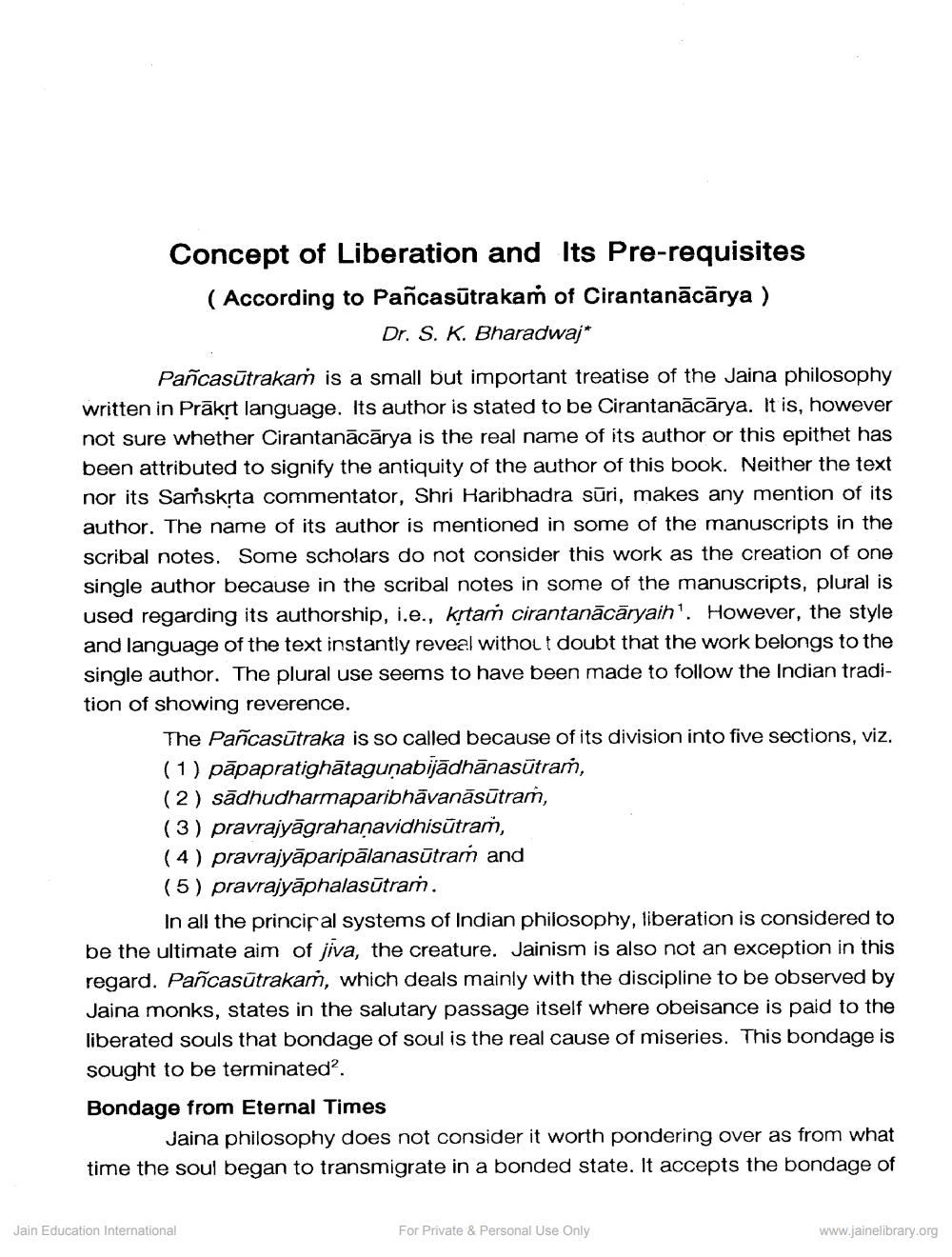________________
Concept of Liberation and Its Pre-requisites ( According to Pañcasūtrakaṁ of Cirantanācārya )
Dr. S. K. Bharadwaj* Pancasūtrakaṁ is a small but important treatise of the Jaina philosophy written in Prākrt language. Its author is stated to be Cirantanācārya. It is, however not sure whether Cirantanācārya is the real name of its author or this epithet has been attributed to signify the antiquity of the author of this book. Neither the text nor its Saṁskrta commentator, Shri Karibhadra sūri, makes any mention of its author. The name of its author is mentioned in some of the manuscripts in the scribal notes. Some scholars do not consider this work as the creation of one single author because in the scribal notes in some of the manuscripts, plural is used regarding its authorship, i.e., krtaṁ cirantanācāryaih'. However, the style and language of the text instantly reveal without doubt that the work belongs to the single author. The plural use seems to have been made to follow the Indian tradition of showing reverence.
The Pañcasūtraka is so called because of its division into five sections, viz. (1) pāpapratighātagunabijadhānasütraí, (2) sādhudharmaparibhāvanāsūtram, (3) pravrajyāgrahanavidhisūtram, (4) pravrajyāparipālanasūtram and (5) pravrajyāphalasūtram.
In all the principal systems of Indian philosophy, liberation is considered to be the ultimate aim of jiva, the creature. Jainism is also not an exception in this regard. Pañcasūtrakań, which deals mainly with the discipline to be observed by Jaina monks, states in the salutary passage itself where obeisance is paid to the liberated souls that bondage of soul is the real cause of miseries. This bondage is sought to be terminated? Bondage from Eternal Times
Jaina philosophy does not consider it worth pondering over as from what time the soul began to transmigrate in a bonded state. It accepts the bondage of
Jain Education International
For Private & Personal Use Only
www.jainelibrary.org




